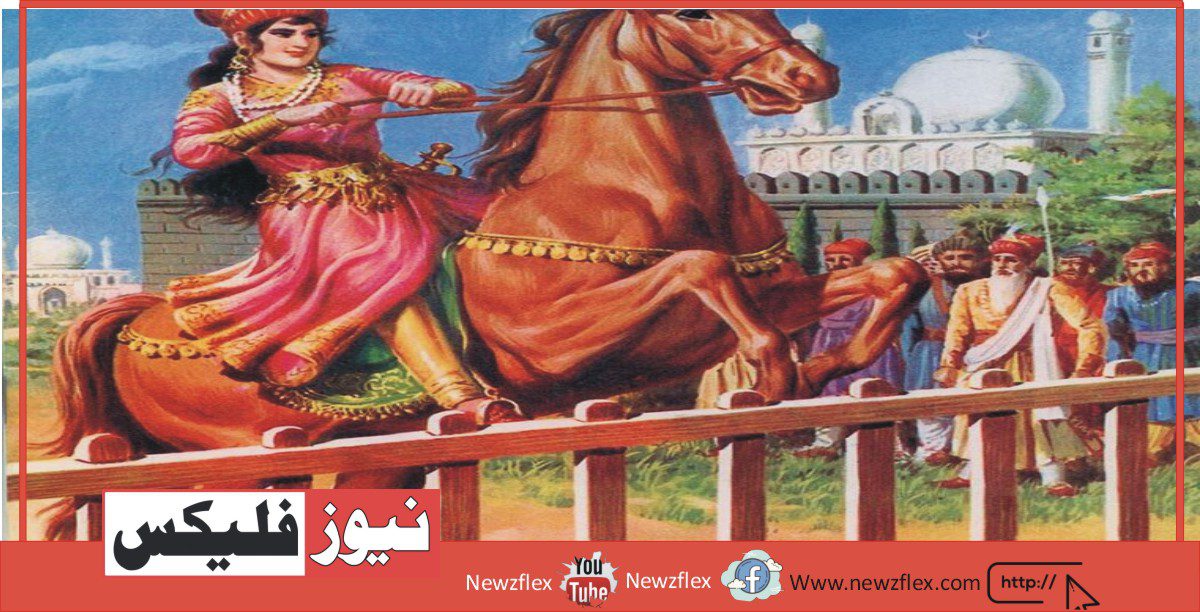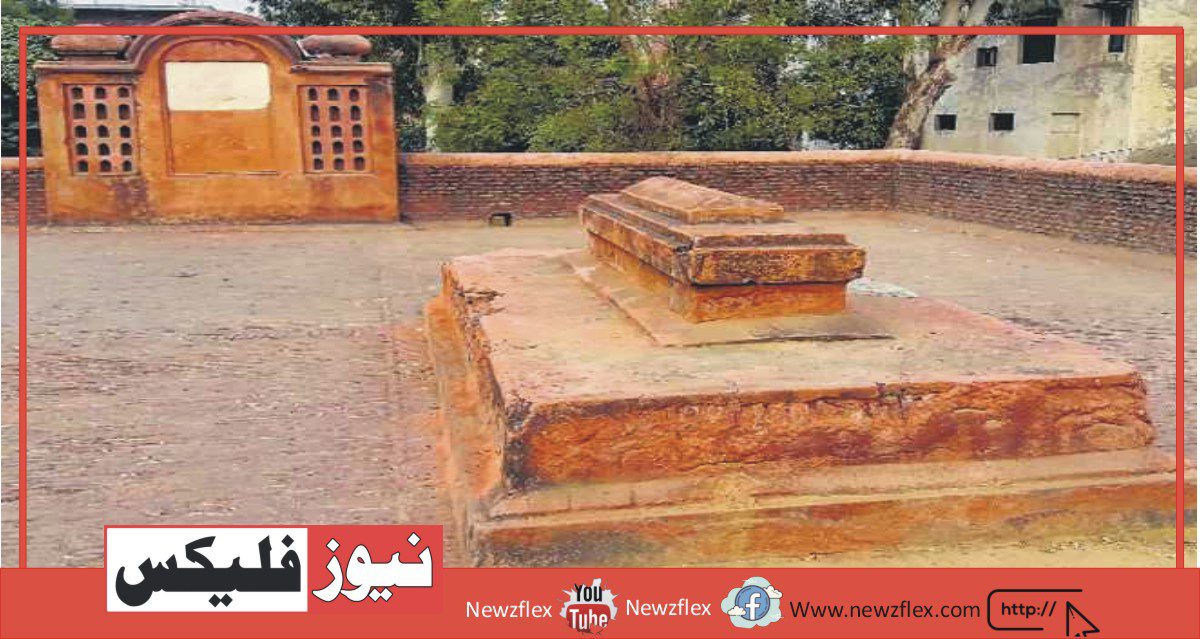
Attaullah Shah Bukhari
Early life:
Hazrat Ameer Shariyat, Attuallah Shah Bukhari was born in Patna, India, on September 23, 1892. His father’s name was Hafiz Syed Ziauddin. He belongs to the Syed family.
He was the descendant of Abdul Qadir Jillani. Qadir Jillani was the descendant of Hazrat Hassan.
Early Education:
Hazrat Attaullah Shah Bukhari got his early education in Gujarat. He received a conventional education. He learned the Holy Quran from his father, Hafiz Syed Ziauddin when he was 10 years old. He completed his early education in Gujrat. He remained related to Deohbond School in Saharanpur. Attaullah Shah and his father believed in the traditional educational system because they considered Islamic education very important for Muslims instead of the other education system. He was against the country’s educational system.
He considered the teaching of English as against the religion; a commonly held view amongst the then Muslims. He learned Islamic education with great devotion. One thing was very surprising and exceptional about his educational life; he had never become a daily student of any Madressah. Nor he had been to any prominent teacher of his time. He got the Fiqh education from Maulana Mustafa Kasmi and Hadith education from Mufti Hassan Amritsari.
Oath:
Bukhari had taken his first oath at the hands of Peer Meher Ali Shah, and his second oath at the hands of Maulana Abdul Kalam Azad. He has attached himself to Deoband’s school of thought.
Religious and Political Career:
Attallah Shah Bukhari started his career as a non-secular person. He began to teach Islamic education. He started his religious life in 1916, at a small Mosque in Amritsar and taught the Quran for the following forty years of his life. This stuff shows that he had great love and devotion to religion. He was a daily reader of the Holy Quran.
When he is accustomed to reciting the Quran everyone becomes silent and takes note of the Holy Quran. most frequently people insisted he recite the Quran on different occasions. The people were greatly impressed by the style of his recitation of the holy book. He was a real preacher of the Holy Quran.
Attaullah Shah Bukhari shared his ideas and thoughts with people who belong to a distinct school of thought. He also had friendships with socialists and communists but he never got any influence from them. As the Quran was the only real guidance for him. He wanted Muslims to move and strive all the time because he was a powerful believer in romantic socialism. He had studied Bukhari Shareef when he had been imprisoned for an anti-government religious speech.
Attaullah Shah Bukhari started his political career in 1916. The accident of Jallianwallah Bagh had a great impact on him, and that’s why he started his politics.
His biographer Shorish Kashmiri wrote Bukhari was the strong anti-British antagonist. He was against British and British policies, he always opposed country policies and hated them. Bukhari’s greatest contribution was that he had created anti-British sentiments in the hearts of the local people.
He delivered a good speech at Khilafat Conference held at Amritsar, in 1919.
He joined the INC in 1921 in Calcutta. He delivered a really impressive and passionate speech there. Soon his popularity turned him into a leader, though he was arrested on 27 March 1921 due to that speech. Bukhari believed in attaining independence through non-violent and constitutional means.
INC member toured the country. He combined his politics with a vision of Islam and followed the injunctions of the Quran throughout his life. He became an eyesore to the administration.
- In 1923, he initiated a movement against the Shudi Sangthan movement.
- In 1924, he participated in the unity conference held in Dehli.
- In 1925, he signed the document which was made against the Mirzai sect. Bukhari was fully against the newly born Qadiyani movement; he was totally against Mirza Ahmed Qadiyani, he stated that Ahmed Qadiyani was a liar had a loose character, was ill-mannered, and never abided by his deeds. Bukhari had been to prison several times.
He was a central figure in the Khatm-e-Nabuwat Movement of 1953, which demanded the government of Pakistan to declare the Ahmadis as non-Muslims.
Another great work of Attaullah Bukhari was Majlis-I-Ahrarar Islam. Some religious political movements emerged from Punjab during the first 1/2 the 20th century. MAI was founded in 1929 in Lahore.MAI unitedly with other religious parties worked against the Ahmadis. This group was then divided into two parties. One group has the following members: Malik Laal Khan, Muhammad Alam, Maulana Abdul Qadri, and Maulana Zafar Ali Khan. the other group led by Fazal Haq decided to play a lively part from the platform of Majlis Ahrar-i-Islam. Fazal Haq was the chief of the new party.
Syed Attaullah Shah Bukhari participated in the meeting convened by these parties. He was a member of the INC and JUH. He started his speech after dinner and continued the whole night till morning prayers. The audience in the meeting listened to him with full attention. “According to WC Smith, he would have claimed to be India’s only demagogue.” together with his oratory, he would hold an audience of thousands inspired and attentive for hours. He was a prize asset of the MAI. He was religious and anti-British.
When the MAI evolved from a plan into an organization on March 30, 1930, it held the first meeting at Islamia College Lahore under the presidency of Fazal Haq. By addressing this meeting, Attaullah Shah Bukhari urged the youth to come back forward and fight for the Independence of their country.
The MAI stood for equal distribution of wealth, eradication of corruption, respect for each religion, and freedom to measure according to Sharia. Ataullah Shah Bukhari, in his presidential address at the session, invited the Muslim masses to cooperate with MAI in its struggle to safeguard the rights of the Muslims, through a separate electorate and therefore the medium of a separate religious organization. The MAI attracted several groups to its rank, drawn mainly from the educated lower and middle classes, small shopkeepers, and urban Muslim youth.
Prof. Khalid Ahmed Shabir stated that Bukhari was among one the three persons who had already revealed the explanations for the downfall of Muslims and proposed the answer to the dilemma.
Molana Johar rightly stated about his oratory abilities that “He wasn’t only enthusiastic in his speeches but spiritual”. His words can easily mould the guts of the listener and will easily force the listener towards the tasks he wants to be accomplished by his listener.
Oratory:
Bukhari was known in India for his matchless oratory. His speeches were filled with amusing stories from Arabic, Persian, Urdu, Punjabi, and Multani. He had command of those languages. His graphics portrayed the sorrows and suffering of the poor. He said to people during his speeches, your suffering will have gotten an end when British rule will end in India. He spreads his message all over India. His speeches had a good impact on the minds of the people.
Death:
Bukhari died at the age of 69. A large number of people participated in his funeral prayer in Multan.
عطا اللہ شاہ بخاری
ابتدائی زندگی
حضرت امیر شریعت، عطا اللہ شاہ بخاری 23 ستمبر 1892ء کو پٹنہ، ہندوستان میں پیدا ہوئے۔ آپ کے والد کا نام حافظ سید ضیاء الدین تھا۔ ان کا تعلق سید خاندان سے ہے۔
وہ عبدالقادر جیلانی کی اولاد میں سے تھے۔ قادر جیلانی حضرت حسن کی اولاد میں سے تھے۔
ابتدائی تعلیم
حضرت عطاء اللہ شاہ بخاری نے ابتدائی تعلیم گجرات سے حاصل کی۔ انہوں نے روایتی تعلیم حاصل کی۔ انہوں نے 10 سال کی عمر میں اپنے والد حافظ سید ضیاء الدین سے قرآن پاک سیکھا۔ انہوں نے اپنی ابتدائی تعلیم گجرات میں مکمل کی۔ وہ سہارنپور کے دیوہ بند اسکول سے وابستہ رہے۔ عطاء اللہ شاہ اور ان کے والد روایتی تعلیمی نظام پر یقین رکھتے تھے کیونکہ وہ سمجھتے تھے کہ اسلامی تعلیم مسلمانوں کے لیے کسی دوسرے نظام تعلیم کے بجائے زیادہ اہم ہے۔ وہ انگریزی نظام تعلیم کے خلاف تھے۔ وہ انگریزی کی تعلیم کو مذہب کے خلاف سمجھتے تھے۔ جو کہ اس وقت کے مسلمانوں میں ایک عام نظریہ تھا۔ انہوں نے اسلامی تعلیم بڑی لگن سے سیکھی۔ ان کی تعلیمی زندگی کے بارے میں ایک بات بہت حیران کن اور غیر معمولی تھی۔ وہ کبھی کسی مدرسے کے باقاعدہ طالب علم نہیں بن سکے تھے۔ نہ ہی وہ اپنے زمانے کے کسی ممتاز استاد کے پاس گئے تھے۔ آپ نے فقہ کی تعلیم مولانا مصطفی قاسمی سے اور حدیث کی تعلیم مفتی حسن امرتسری سے حاصل کی۔
حلف
بخاری نے اپنا پہلا حلف پیر مہر علی شاہ کے ہاتھوں اٹھایا اور دوسرا حلف مولانا عبدالکلام آزاد کے ہاتھوں اٹھایا۔ انہوں نے خود کو دیوبند کے مکتبہ فکر سے جوڑ لیا ہے۔
مذہبی اور سیاسی کیریئر
عطا اللہ شاہ بخاری نے اپنے کیریئر کا آغاز ایک مذہبی شخصیت کے طور پر کیا۔ انہوں نے اسلامی تعلیم دینا شروع کی۔ انہوں نے اپنی مذہبی زندگی کا آغاز 1916 میں امرتسر کی ایک چھوٹی سی مسجد میں کیا اور اپنی زندگی کے اگلے چالیس سال تک قرآن کی تعلیم دی۔ یہ باتیں بتاتی ہیں کہ آپ کو دین سے بے پناہ محبت اور عقیدت تھی۔ وہ قرآن پاک کے باقاعدہ قاری تھے۔ جب وہ قرآن پڑھتے تھے تو سب خاموش ہو جاتے تھے اور قرآن پاک سنتے تھے۔ اکثر لوگوں کے اصرارپر وہ مختلف مواقع پر قرآن کی تلاوت کرتے تھے۔ ان کے کلام پاک کی تلاوت کے انداز سے لوگ بے حد متاثر ہوئے۔ وہ قرآن پاک کے سچے مبلغ تھے۔
عطا اللہ شاہ بخاری نے اپنے خیالات اور نظریات دوسرے لوگوں کے ساتھ شیئر کیے جن کا تعلق ایک مختلف مکتبہ فکر سے ہے۔ سوشلسٹوں اور کمیونسٹوں سے بھی ان کی دوستی تھی لیکن ان سے کبھی کوئی اثر نہیں ہوا۔ کیونکہ قرآن ہی اس کے لیے واحد رہنما تھا۔ وہ چاہتے تھے کہ مسلمان ہر وقت متحرک اور جدوجہد کرتے رہیں کیونکہ وہ رومانوی سوشلزم کا پختہ یقین رکھتے تھے۔ انہوں نے بخاری شریف کا مطالعہ اس وقت کیا تھا جب وہ حکومت مخالف مذہبی تقریر کے جرم میں قید تھے۔
عطاء اللہ شاہ بخاری نے اپنے سیاسی کیرئیر کا آغاز 1916 میں کیا، جلیانوالہ باغ کے حادثے نے ان پر بہت اثر ڈالا، اسی لیے انہوں نے اپنی سیاست کا آغاز کیا۔ ان کے سوانح نگار شورش کشمیری ان کے بارے میں لکھتے ہیں، بخاری انگریزوں کے سخت مخالف تھے۔ وہ انگریزوں اور انگریزوں کی پالیسیوں کے خلاف تھا، انہوں نے ہمیشہ انگریزوں کی پالیسیوں کی مخالفت کی اور ان سے نفرت کی۔ بخاری کا سب سے بڑا کارنامہ یہ تھا کہ انہوں نے مقامی لوگوں کے دلوں میں انگریز مخالف جذبات پیدا کئے۔
انہوں نے امرتسر میں منعقدہ خلافت کانفرنس 1919 میں زبردست تقریر کی۔
انہوں نے کلکتہ میں 1921 میں آئی این سی میں شمولیت اختیار کی۔ انہوں نے وہاں بہت متاثر کن اور پرجوش تقریر کی۔ جلد ہی ان کی مقبولیت نے انہیں ایک لیڈر بنا دیا، حالانکہ اس تقریر کی وجہ سے انہیں 27 مارچ 1921 کو گرفتار کر لیا گیا تھا۔ بخاری عدم تشدد اور آئینی ذرائع سے آزادی حاصل کرنے میں یقین رکھتے تھے۔
آئی این سی کے رکن نے ملک کا دورہ کیا۔ انہوں نے اپنی سیاست کو اسلام کے وژن سے جوڑ دیا اور زندگی بھر قرآن کے احکامات پر عمل کیا۔ وہ انتظامیہ کی آنکھوں کا تارا بن گئے۔
نمبرایک:1923 میں انہوں نے شودی سنگٹھن تحریک کے خلاف تحریک شروع کی۔
نمببر دو:1924 میں انہوں نے دہلی میں منعقدہ اتحاد کانفرنس میں شرکت کی۔
نمبر تین:1925 میں اس نے اس دستاویز پر دستخط کیے جو مرزائی فرقے کے خلاف بنے تھے۔ بخاری نوزائیدہ قادیانی تحریک کے مکمل خلاف تھے۔ وہ مکمل طور پر مرزا احمد قادیانی کے خلاف تھے، انہوں نے کہا کہ احمد قادیانی ایک جھوٹا تھا جس کا کردار بد اخلاق تھا اور کبھی بھی اپنے اعمال کی پاسداری نہیں کرتا تھا۔ بخاری کئی بار جیل جا چکے ہیں۔ وہ 1953 کی تحریک ختم نبوت میں مرکزی شخصیت تھے، جس نے حکومت پاکستان سے احمدیوں کو غیر مسلم قرار دینے کا مطالبہ کیا۔
عطاء اللہ بخاری کا ایک اور عظیم کام مجلس احرار اسلام تھا۔ 20ویں صدی کے پہلے نصف کے دوران پنجاب سے کچھ مذہبی سیاسی تحریکیں ابھریں۔ ایم اے آئی کی بنیاد 1929 میں لاہور میں رکھی گئی۔ ایم اے آئی نے دیگر مذہبی جماعتوں کے ساتھ مل کر احمدیوں کے خلاف کام کیا۔ یہ گروہ پھر دو جماعتوں میں بٹ گیا۔ ایک گروپ میں درج ذیل ممبران ہیں: ملک لال خان، محمد عالم، مولانا عبدالقادری، اور مولانا ظفر علی خان۔ دوسرے گروپ کی قیادت فضل حق کر رہے تھے، جس نے مجلس احرار اسلام کے پلیٹ فارم سے فعال کردار ادا کرنے کا فیصلہ کیا۔ فضل حق نئی پارٹی کے سربراہ تھے۔
ان جماعتوں کے بلائے گئے اجلاس میں سید عطاء اللہ شاہ بخاری نے شرکت کی۔ وہ آئی این سی اور جے یو ایچ کے رکن تھے۔ انہوں نے رات کے کھانے کے بعد تقریر شروع کی اور صبح کی نماز تک پوری رات جاری رہی۔ اجلاس میں حاضرین نے پوری توجہ سے ان کی باتیں سنی۔ ‘ڈبلیو سی اسمتھ کے مطابق، وہ ہندوستان کا سب سے موثر ڈیماگوگ ہونے کا دعویٰ کرتے۔’ اپنی تقریر کے ساتھ، وہ ہزاروں کی تعداد میں سامعین کو متاثر کرتے اور گھنٹوں توجہ مبذول کیے رکھتے۔ وہ ایم اے آئی کا ایک انعامی اثاثہ تھے۔ وہ مذہبی اور انگریزوں کے مخالف تھے۔ 30 مارچ 1930 کو جب ایم اے آئی ایک خیال سے ایک تنظیم میں تبدیل ہوئی تو اس کا پہلا اجلاس اسلامیہ کالج لاہور میں فضل حق کی صدارت میں ہوا۔ اس اجلاس سے خطاب کرتے ہوئے عطاء اللہ شاہ بخاری نے نوجوانوں پر زور دیا کہ وہ آگے آئیں اور اپنے ملک کی آزادی کے لیے جدوجہد کریں۔
ایم اے آئی دولت کی مساوی تقسیم، بدعنوانی کے خاتمے، ہر مذہب کے احترام اور شریعت کے مطابق زندگی گزارنے کی آزادی کے لیے کھڑے تھے۔ عطاء اللہ شاہ بخاری نے سیشن میں اپنے صدارتی خطاب میں مسلم عوام کو دعوت دی کہ وہ مسلمانوں کے حقوق کے تحفظ کی جدوجہد میںایم اے آئی کے ساتھ ایک الگ ووٹر اور ایک علیحدہ مذہبی تنظیم کے ذریعے تعاون کریں۔ ایم اے آئی نے کئی گروہوں کو اپنے عہدے کی طرف راغب کیا، جو بنیادی طور پر پڑھے لکھے نچلے اور متوسط طبقے، چھوٹے دکاندار، اور شہری مسلم نوجوان تھے۔
پروفیسر خالد احمد شبیر نے بیان کیا ہے کہ بخاری ان تین افراد میں سے ایک تھے جنہوں نے مسلمانوں کے زوال کے اسباب کو پہلے ہی ظاہر کیا تھا اور اس مخمصے کا حل تجویز کیا تھا۔ مولانا جوہر نے اپنی تقریری صلاحیتوں کے بارے میں بجا طور پر کہا کہ ’’وہ نہ صرف اپنی تقریروں میں پرجوش تھے بلکہ روحانی بھی تھے‘‘۔ اس کے الفاظ سننے والے کے دل کو آسانی سے ڈھال سکتے ہیں اور سننے والے کو آسانی سے ان کاموں کی طرف مجبور کر سکتے ہیں جن کو وہ اپنے سامع سے پورا کرنا چاہتا ہے۔
تقریر
بخاری ہندوستان میں اپنی بے مثال تقریر کے لیے جانے جاتے تھے۔ ان کی تقریریں عربی، فارسی، اردو، پنجابی اور ملتانی کے دل چسپ کہانیوں سے بھری ہوئی تھیں۔ انہیں ان زبانوں پر عبور حاصل تھا۔ اس کے گرافکس میں غریبوں کے دکھ اور تکلیف کی تصویر کشی کی گئی تھی۔ انہوں نے اپنی تقریروں کے دوران لوگوں سے کہا کہ جب ہندوستان میں انگریزوں کا راج ختم ہو جائے گا تو تمہارے دکھ ختم ہو جائیں گے۔ وہ اپنا پیغام پورے ہندوستان میں پھیلاتےر ہے۔ ان کی تقریروں نے لوگوں کے ذہنوں پر بہت اثر کیا۔
موت
بخاری 69 سال کی عمر میں انتقال کر گئے، ملتان میں ان کی نماز جنازہ میں لوگوں کی بڑی تعداد نے شرکت کی۔








